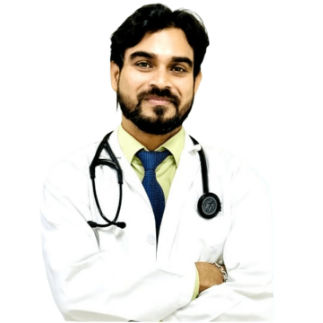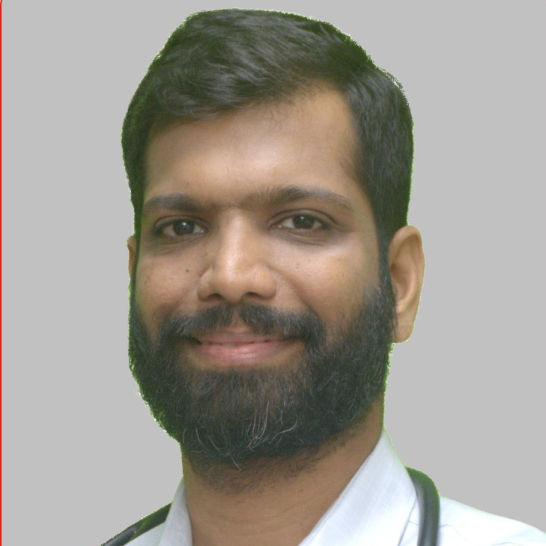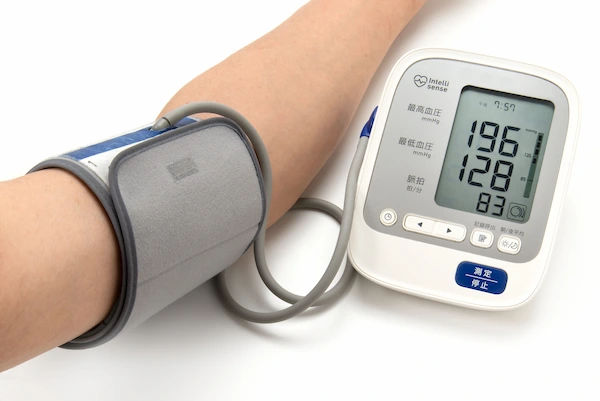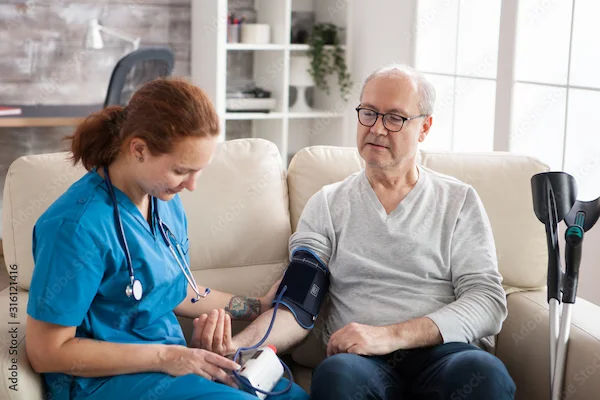How Small Lifestyle Changes Can Help Control Hypertension?
Learn how simple daily habits can help manage hypertension. Explore effective tips on diet, exercise, stress reduction, and routine monitoring to keep your blood pressure under control naturally.

Written by Dr. J T Hema Pratima
Reviewed by Dr. Shaik Abdul Kalam MD (Physician)
Last updated on 11th Sep, 2025

Hypertension, or high blood pressure, is often called the "silent killer" because it frequently presents no symptoms while silently damaging your heart and blood vessels. But here's the empowering truth: this condition is highly manageable. You don't always need drastic measures to see a change. Often, a little care and consistent, small adjustments to your daily routine can make a monumental difference in controlling your numbers and protecting your long-term health. This guide is designed to show you how. We'll walk through the simple, evidence-based steps—from what you put on your plate to how you manage stress—that can help you take control of your hypertension. This isn't about a complete life overhaul; it's about building sustainable habits that your heart will thank you for.
What is Hypertension?
Hypertension is a condition where the force of your blood pushing against the walls of your arteries is consistently too high. This constant pressure forces your heart and blood vessels to work much harder, which over time can lead to serious health issues like heart attack, stroke, aneurysm, and kidney disease. The scariest part is its stealthy nature; millions of people have it without knowing.
Systolic and Diastolic Pressure Explained
When you get a reading, you see two numbers (e.g., 120/80 mmHg).
Systolic Pressure (Top Number): This measures the pressure in your arteries when your heart beats.
Diastolic Pressure (Bottom Number): This measures the pressure in your arteries when your heart rests between beats.
A reading consistently at or above 130/80 mmHg is generally considered hypertensive.
Why "Little Care" is a Powerful Medicine?
The concept of "a little care" is backed by robust science. Major health studies, like those from the American Heart Association, show that incremental lifestyle modifications can lower systolic blood pressure by 4-11 mmHg. For some, this is enough to avoid medication. For others, it complements medication, allowing for lower doses. This approach empowers you to be an active participant in your health through natural ways to lower blood pressure.
Diet: The First Line of Defense
What you eat directly influences your blood pressure. The goal isn't a restrictive diet but a strategic one focused on heart-healthy foods.
Slashing Sodium:
Excess sodium makes your body retain water, increasing the blood volume and, consequently, the pressure on your artery walls. The American Heart Association recommends no more than 2,300 mg a day, moving toward an ideal limit of 1,500 mg for most adults.
Actionable Tip: Cook at home more often, use herbs and spices instead of salt, and rinse canned vegetables and beans.
Sneaky Sources of Sodium to Watch Out For:
Processed meats (sausages, bacon, ham)
Canned soups and broths
Breads and rolls
Pizza
Cheese
Restaurant and fast food
Embracing Potassium-Rich Foods
Potassium helps balance the amount of sodium in your cells and eases pressure on your blood vessels. Excellent sources include:
Leafy greens (spinach, kale)
Bananas
Avocados
Sweet potatoes
Beans and lentils
Yoghurt
The Power of the DASH Diet
The Dietary Approaches to Stop Hypertension (DASH) diet is consistently ranked as one of the best diets for heart health. It’s not a fad; it's a balanced eating plan that emphasises:
Fruits, vegetables, and whole grains
Lean protein sources (fish, poultry)
Low-fat dairy products
Nuts and seeds
It specifically limits foods high in saturated fat, sugar, and sodium. Following a DASH diet meal plan is one of the most effective dietary steps you can take.
Simple Exercises for Lower Pressure
Regular physical activity strengthens your heart. A stronger heart can pump more blood with less effort, which decreases the force on your arteries.
Why a Daily Walk is a Wonder Drug?
You don't need to run a marathon. Brisk walking for just 30 minutes most days of the week can significantly improve your cardiovascular health. It’s one of the easy exercises for high BP. Consistency is far more important than intensity.
Incorporating Strength Training Safely
Strength training is also beneficial. Building muscle improves overall metabolic health. Aim for moderate-intensity strength training exercises at least two days a week. Focus on all major muscle groups, but remember to breathe steadily and avoid holding your breath, as that can spike blood pressure.
The Mind-Body Connection: Stress and Hypertension
While stress alone might not cause chronic hypertension, it can lead to temporary spikes and unhealthy coping behaviours (like overeating or drinking) that contribute to high BP.
How Stress Spikes Your Blood Pressure
When you're stressed, your body releases hormones like adrenaline and cortisol. These hormones cause your heart to beat faster and your blood vessels to narrow, causing a temporary increase in blood pressure.
5-Minute Daily Habits for Calm
Incorporating small moments of calm can mitigate this response.
Deep Breathing Techniques: The simplest and fastest way to calm your nervous system. Try the 4-7-8 method: Inhale for 4 seconds, hold for 7 seconds, and exhale slowly for 8 seconds. Repeat 3-4 times.
Mindfulness and Meditation: Spending just a few minutes a day in quiet meditation or mindfulness practice can reduce overall stress levels. Apps like Calm or Headspace offer guided sessions for beginners.
Consult Top Specialists
Other Key Lifestyle Levers to Pull
Here are some key lifestyle levers to pull:
The Link Between Weight and Blood Pressure
Blood pressure often increases as weight increases. Being overweight can also cause disrupted breathing while you sleep (sleep apnea), which further raises blood pressure. Weight management is crucial. Losing even a small amount of weight if you're overweight or obese can help reduce your blood pressure.
Moderating Alcohol Intake
Alcohol can both raise your blood pressure and reduce the effectiveness of blood pressure medications. If you drink, do so in moderation—no more than one drink a day for women and two for men.
The Importance of Quality Sleep
Poor sleep quality over time is linked to an increased risk of hypertension. Aim for 7-9 hours of quality sleep per night. Establish a regular sleep schedule and create a restful environment.
Monitoring and Maintenance
How to Use a Home Blood Pressure Monitor Correctly?
Home monitoring is a fantastic tool for how to check BP at home and track your progress. Ensure you:
Use a validated, automatic, upper-arm cuff monitor.
Avoid caffeine, exercise, and smoking for 30 minutes before.
Sit quietly for 5 minutes with your back supported and feet flat on the floor.
Take two readings, one minute apart, and average them.
The Importance of Regular Check-ups
While home monitoring is great, professional oversight is essential. If your home readings are consistently high, or if you're making changes to your management plan, consult a doctor online with Apollo24|7 for further evaluation and guidance. They can help interpret your numbers in the context of your overall health.
When Lifestyle Isn't Enough?
For some individuals, lifestyle changes are sufficient. For others, genetics and other factors mean that medication is a necessary part of the plan. This is not a failure; it's a smart strategy to protect your health.
Understanding Hypertension Medications
There are several classes of drugs, including ACE inhibitors, ARBs, diuretics, and calcium channel blockers. Your doctor will prescribe one or a combination based on your specific needs.
The Critical Nature of Medication Adherence
If your doctor prescribes medication, take it exactly as directed. Never stop taking it without talking to your doctor, even if you feel fine. If your condition does not improve after trying these lifestyle methods, or if you experience side effects, book a physical visit to a doctor with Apollo24|7 to discuss adjusting your plan. Apollo24|7 also offers convenient home collection for tests like kidney function or cholesterol panels that are important for monitoring the effects of hypertension.
Conclusion
Managing hypertension is a marathon, not a sprint. It’s built on the foundation of consistent, little care practices that become lifelong habits. You have the power to influence your health outcomes significantly through the choices you make every day—what you eat, how you move, and how you manage stress. Remember, progress, not perfection, is the goal. Start with one change, master it, and then add another. By taking these steps, you’re not just lowering a number on a monitor; you’re actively investing in a longer, healthier, and more vibrant life. Your heart will thank you for every small bit of care you give it.
Consult Top Specialists
Consult Top Specialists

Dr. Vignesh Thanikgaivasan
Cardiologist
11 Years • MBBS, MD (Gen Med), DM (Cardiology) AFAPSIC, FIMSA, FSCAI
Chennai
Apollo Hospitals Greams Road, Chennai
(100+ Patients)
Dr. Praveen Jaiswal
Cardiologist
17 Years • MD(Medicine), DM(Cardiology)
Indore
Apollo Hospitals Vijay Nagar, Indore
Dr. Vishnu Prasanth
Cardiologist
8 Years • MD, DNB Cardiology
Chennai
Apollo Hospitals Cancer Centre Nandanam, Chennai

Dr. Abhishek Kaushley
Cardiologist
5 Years • MBBS, MD( Medicine), DNB, DM - Cardiology
Bilaspur
Apollo Hospitals Seepat Road, Bilaspur

Dr. Nirmal Kolte
Cardiologist
8 Years • MBBS MD (Medicine) DM (Cardiology)
Nashik
Apollo Hospitals Nashik, Nashik


